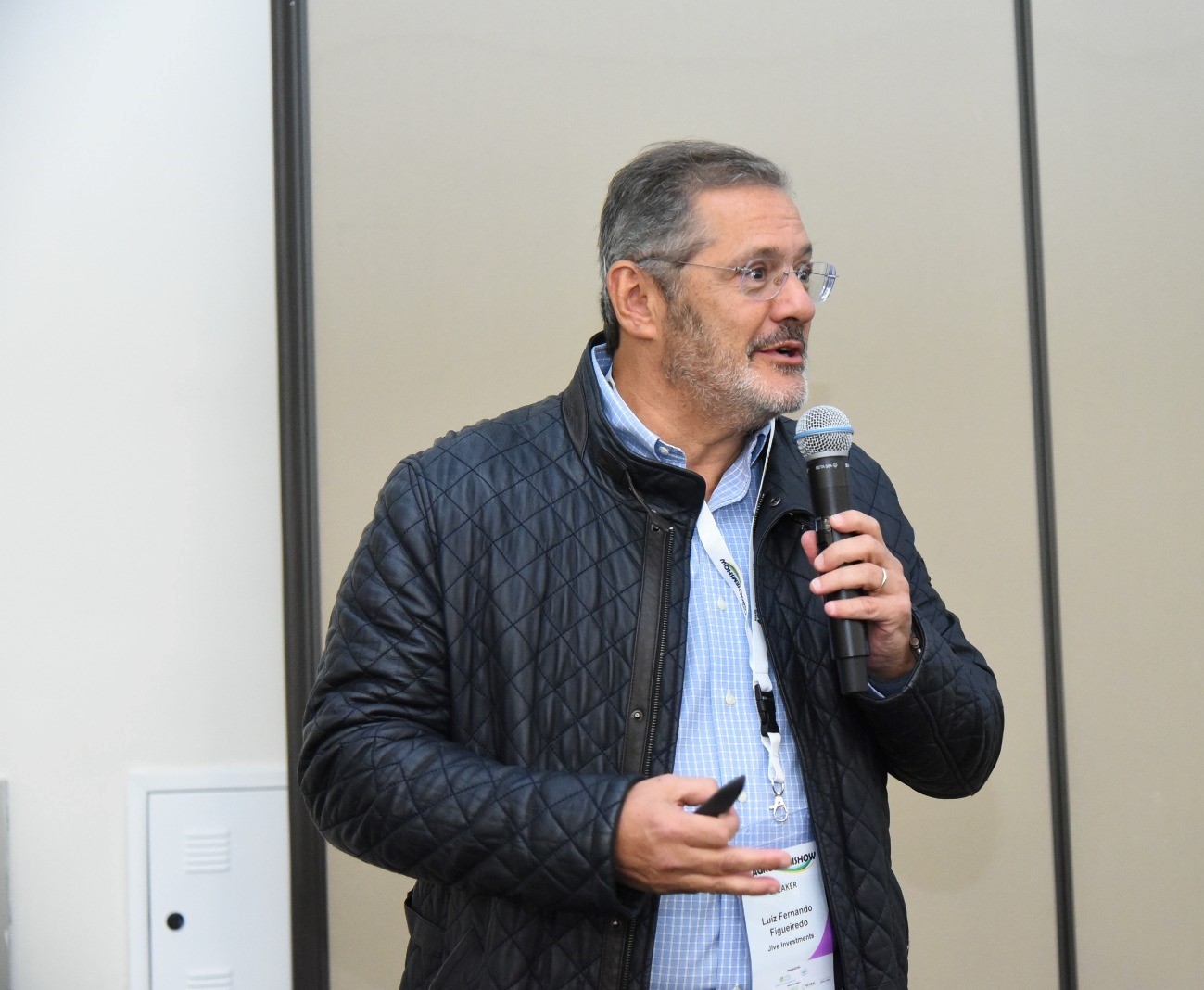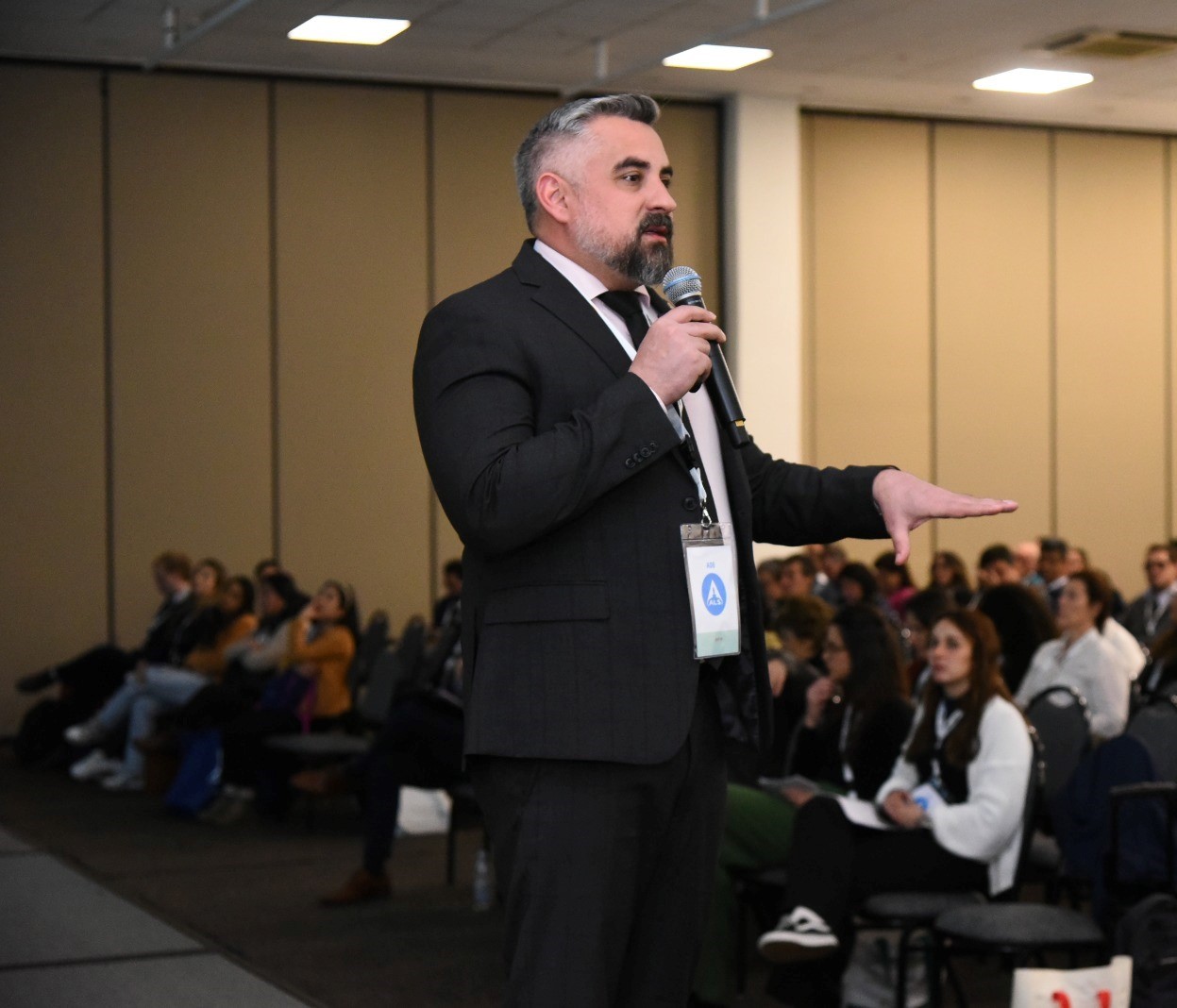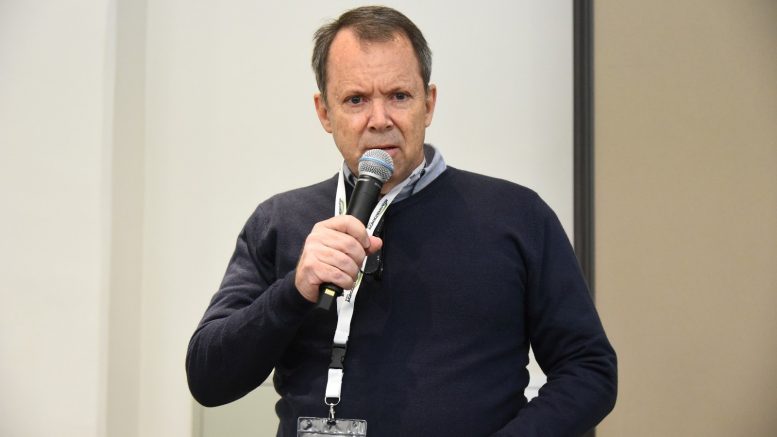15th Brasil Agrochemshow – Lectures August 13th
The 1st day of the 15th Brasil Agrochemshow took place in São Paulo, Brazil, on August 13th. The event is organized by CCPIT CHEM, from China, and by the Brazilian agribusiness consulting firm AllierBrasil.
In the first section of lectures, experts on agribusiness and the pesticide market gave lectures about the Brazilian, Chinese and Peruvian outlook on agriculture and the agrochemical business.
Priorities and Challenges of the Agriculture and Livestock Defense Secretariat of Brazil
Carlos Goulart – Secretary of Agriculture and Livestock Defense at the Ministry of Agriculture of Brazil
Brazil is going through many changes in legislation in the pesticide registration area. “In Brazil, we have the slowest system in the world to register chemical pesticides, but we have the fastest one for biological products… and all of this following the same legislation”.
“The Brazilian system for pesticide registration is the slowest. It is very expensive and unpredictable”.
Overview, Trends and Challenges in the Pesticide Market
Filipe Guimarães – Head of Product Marketing Latin America at Syngenta Crop Protection
The Brazilian pesticide market increased tenfold in size since the year 2000. “Even with the different phases that we went through… when we had some cyclical market contractions, this is a market that will continue to grow. It might not grow with the same speed from before. Even so, Brazil will continue to propel agribusiness worldwide”. An important tendency for the upcoming years is with regard to the combination of chemical and biological pesticides.
IPM (Integrated Pest Management) in Soybean
Adeney de Freitas Bueno – Researcher at Embrapa Soybean
There is an increased necessity for a varied approach in dealing with agricultural pests, with an emphasis in sustainable practices. “We can double the agricultural area without cutting down a single tree. We have 160 million hectares of pasture today in Brazil, and 28 million hectares have a high agricultural potential… those could be used for agriculture”.
The growth of agriculture in Brazil demands better strategies when dealing with pests and diseases. “We can’t adopt the tools of the past. We have to use Integrated Pest Management… For instance, chemical insecticides are still the main tool for dealing with pests in soybean, but the tendency is for the use to decrease”.
Overview of Brazilian Economy
Luiz Fernando Figueiredo – Chairman of Jive Investments
Brazil went through a big package of reforms on the last decade. “Because of the many changes and reforms, the economists made grave errors when forecasting data about the country’s economy. Brazil grew more than expected… All those reforms made it difficult to forecast growth”.
One of the biggest changes from the past years was the Brazilian Central Bank’s autonomy law, enacted in 2021. “No ‘good’ country in the world has a Central Bank without autonomy. This is a great change”.
China Pesticide and Biopesticide Industry Overview
Jalen Fan – Deputy Director in Division of CCPIT CHEM
Insights on the data about registrations and registrant companies, for chemical formulated and technical pesticide products. More than 600 registrations were cancelled, and pesticides such as omethoate, carbofuran, 2,4-D butylate, paraquat, and others, went through restrictions or were banned.
“In 2023, the production was of 1,849 thousand tons of pesticide active ingredients… and 1,560 thousand tons of active ingredients were exported to more than 180 countries”. With regard to the biologicals market in agriculture, including biopesticides, biofertilizers and biostimulants, it comprises over 1,900 active ingredients, and 7,200 brands, sold by over 700 companies.
Agrochemical Industry Evolution in China and Resistance to Involution
Zhang Jinlong – Independent Researcher
Overview on the current circumstances of the agrochemical industry in China, highlighting the aperiodic shortages due to shutdowns, or the cases of severe overcapacity. “The Chinese Agrochemical Industry is not isolated. Chinese companies play very important roles in the global agrochemical industry”.
There is a consolidation of manufacturing in the country, pointing to the process of M&A, with examples such as the cases of Maxunitech to acquire Shijie, Lier to control Bide, etc.
Pesticide Registration in Peru
Vanessa Del Pilar Mendoza Soto – General Manager at Agro Advice Perú SAC
The Andean regulations for pesticide registration, highlighting Resolution 2075, the “Andean Technical Manual for the Registration and Control of Chemical Pesticides for Agricultural Use”.
The process for product registration in Peru involves three authorities: the National Agrarian Health Service of Peru, the General Direction of Agricultural Environmental Affairs, and the General Direction of Environmental Health and Food Safety, each one dealing with a different aspect of pesticide registration in the country.
15th Brasil Agrochemshow Lectures – August 14th
The 2nd day of the 15th Brasil Agrochemshow took place in São Paulo, Brazil, on August 14th. The event is organized by the Brazilian agribusiness consulting firm AllierBrasil, and by the CCPIT CHEM, from China. There were two days of lectures and exhibitions, with the presence of participants from Brazil, India, China, Latin America.
In the second section of lectures, there were more discussions about the Brazilian agribusiness and agrochemical market. Renowned professionals spoke on pesticide registration, agricultural cooperatives, proper pesticide and fertilizer usage, etc.
Coopercitrus Business Expansion and the Future of Cooperatives in Agribusiness
Fernando Degobbi Sambonovich – CEO of Coopercitrus
Insights about the new digital approach to farming, georeferencing, the agricultural market and about how Coopercitrus operates. “Our value proposition is to offer everything that the farmer needs. We are a different kind of agricultural cooperative: most earn more from grain origination, verticalization, for example. We earn more from selling inputs”.
Critical Issues in the Evaluation of Formulated Product Registration in Brazil
Tatiane Almeida do Nascimento – Head of the Formulated Products Registration Division at the Ministry of Agriculture of Brazil
Critical points which cause the most trouble during pesticide registration, with examples related to the different categories of formulated products. “When performing experiments for the evaluation of agricultural effectiveness, the companies should check how the pesticide works on the different Brazilian regions and States, focused on where the crops are. They should not focus on a single region or area”.
Pesticide Registration and New Law No. 14785 in Brazil
José Victor Torres – General Coordinator of Pesticide and Related Products at the Ministry of Agriculture of Brazil
Presentation of the timeline of changes that the pesticide legislation in Brazil went through, which culminated in the new Pesticide Law No. 14785. This law is still being discussed, given that it needs many decrees and norms to proper regulate the registration process. “Now we will have the rules of the ‘game’ well defined. But there is still a lot of work, because we need to regulate this new law”.
Rational Use of Fertilizers
Godofredo Vitti – Researcher and professor of fertilizer, fertilization and soil fertility at Esalq/USP
Commentary on the dependency of fertilizer imports faced by Brazil, which has purchase nitrogen, phosphorus, potassium from abroad. “The Brazilian weakness is in its fertilizer imports”. Some options to circumvent this problem are no-till cultivation, minimum cultivation, soil correction practices (liming, agricultural gypsum), and others.
Environmental Dynamics of Herbicides
Paulo Vinicius da Silva – Professor of biology and management of weeds at the Federal University of Grande Dourados
Commented on the processes of photodegradation, volatilization, transport, absorption, etc., which can affect the effectiveness of pesticides and the possible environmental impacts. “The processes of transformation of herbicide molecules in soil and water result from the degradation of these molecules into secondary compounds, until their complete mineralization”.
Pesticide Registration: Time, Lawsuit, New Law
Flavio Hirata – Partner at AllierBrasil
An overview on the long time for registration approvals in Brazil, which is the bottleneck in accessing the market. “A registration can take up to 10 years to be approved. And when the registration is approved, it may happen that the active ingredient is no longer important to the market”.
There are no significant differences in the time for registration in the past 3 years. Companies are trying to expedite registrations through lawsuits against regulatory agencies, which represent 30% of approvals for generic products in 2023, according to the Official Gazette publications. There was also a presentation on the data regarding product cancellations: 177 in 2023 and 129 in 2022.

